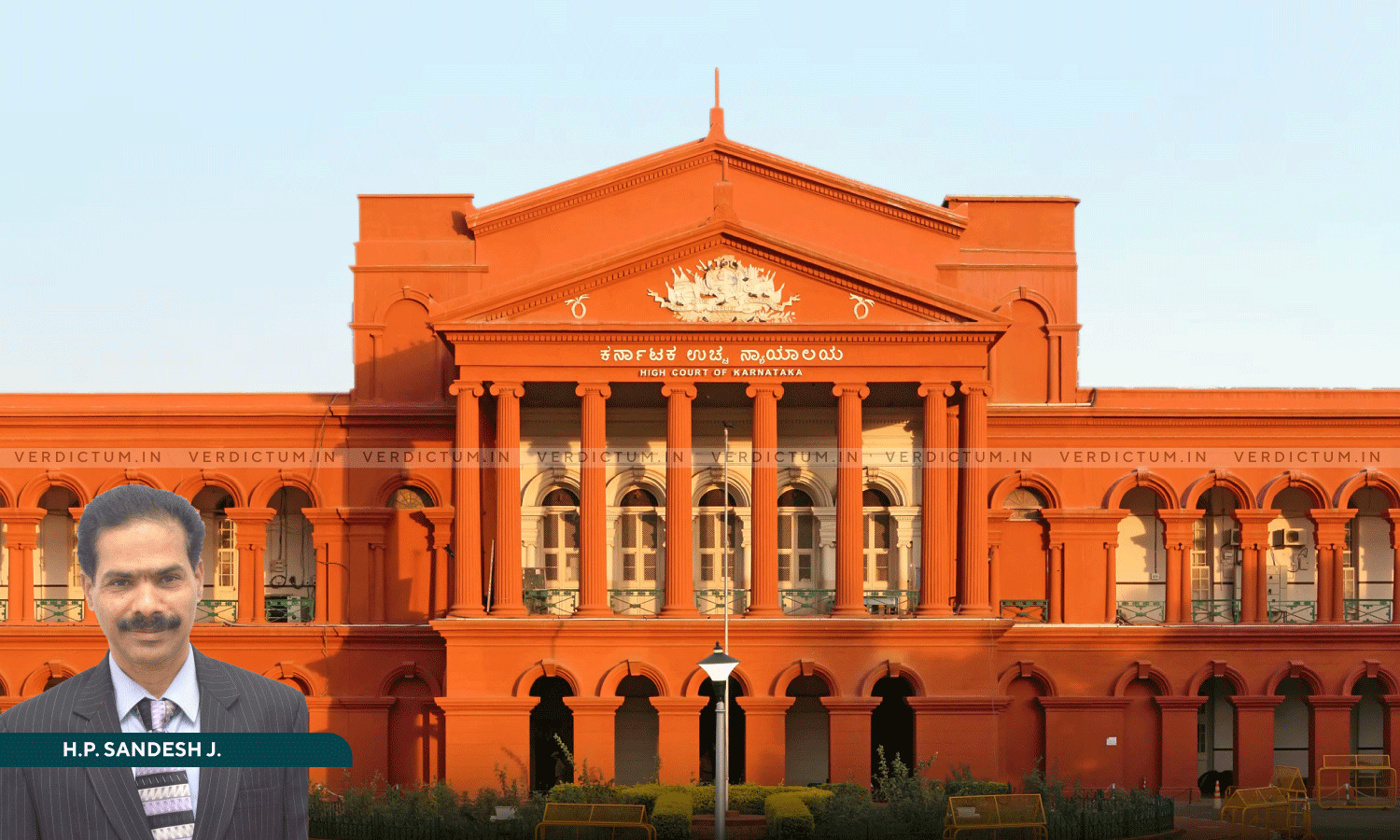When Plaintiffs Are Not In Possession Of Property, They Can’t Seek Relief Of Declaration Without Seeking Possession: Karnataka High Court

The Karnataka High Court reiterated that when the Plaintiffs are not in possession of the property, they cannot seek for the relief of declaration without seeking the relief of possession.
The Court reiterated thus in a Regular Second Appeal filed against the concurrent finding of the Trial Court and the First Appellate Court, granting relief of declaration, declaring that the Plaintiffs are the absolute owners of the schedule properties.
A Single Bench of Justice H.P. Sandesh enunciated, “Though an attempt was made by the counsel appearing for the respondent relying upon the judgment of Maharashtra referred simple imprisonment[ra that suit for declaration simpliciter is maintainable, but in view of the judgment of the Apex Court it is very clear that when the plaintiffs are not in possession of the property they cannot seek for the relief of declaration without seeking the relief of possession and suit for declaration simpliciter is not maintainable and also it is held that it is settled law that amendment of a plaint can be made at any stage of a suit, even at the second appellate stage”
Advocate Prasanna V.R. appeared on behalf of the Appellant while Advocate Chandranath Ariga K. appeared on behalf of the Respondents.
Factual Background
Aithu Belchada was the father of the Plaintiffs/Respondents who had claimed occupancy right in respect of the properties by filing an Application under Section 48A(1) of the Karnataka Land Reforms Act, 1961 (KLR Act). His claim was enquired into by the Land Tribunal and the occupancy right was granted in his name. Pursuantly, the occupancy certificate was issued in the name of Aithu by the Spl. Tahsildar, Land Reforms. During the lifetime of Aithu, he had entered into a registered partition deed with his sisters in 1991 and he died in 1998, leaving behind Plaintiffs as his only legal heirs. The right, title, and interest over the properties devolved upon them.
At no point of time, the Defendant was in possession of the property and there was no occasion arisen to Aithu to execute the Will in favour of the Defendant, disinheriting his own legal heirs. Hence, relief of declaration was sought and in pursuance of suit summons, the Defendant filed the Written Statement. The Trial Court came to the conclusion that Plaintiffs failed to prove the land was granted in favour of Aithu by the Land Tribunal. Being aggrieved by the Judgment of Decree of declaring the Plaintiffs as owners of the property, an Appeal was filed. The First Appellate Court confirmed the Trial Court’s Judgment and challenging this, the Second Appeal was preferred before the High Court.
Reasoning
The High Court in view of the facts and circumstances of the case, observed, “Having considered the principles laid down in the judgment referred supra, adverting the facts of present case on a perusal of the plaint, it is evident that the defendant was in possession of the suit schedule property and also there is a clear admission in the evidence also and also he categorically pleaded in the written statement that he is in possession of the property and there was a Will and also he had constructed the house and residing there.”
The Court said that it is clear that the Defendant was in possession of the property in respect of the written statement schedule property which he had claimed and also not made any effort seeking for the relief of possession by amending the plaint and it is also material that the Defendant is in possession of the property.
“… in the present case on hand also no such attempt was made and when such being the case, it is clear that the judgment of the Trial Court and First Appellate Court is erroneous and though comes to the conclusion that Will is hit by Section 61 of Karnataka Land Reforms Act but, both the Courts failed to take note of fact that defendant is in possession of the property and plaintiffs are not in possession of the property in respect of the written statement schedule property and without seeking the relief of possession, the very suit for simpliciter for declaration is not maintainable”, it added.
Accordingly, the High Court allowed the Second Appeal and set aside the impugned Order.
Cause Title- Somayya Belchada v. Santhosh & Ors. [Case Number: REGULAR SECOND APPEAL NO.23/2021 (DEC)]





